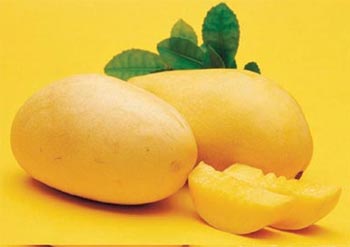Chengdu’s plans put it in the international shop window
(China Daily) Updated: 2016-07-18 17:20Chengdu is expecting more global visitors in the coming years as it aims to build itself into a world-class tourist destination and shopping center.
The city adopted a tax rebate policy on Jan 1, according to which visitors from foreign countries, as well as Hong Kong, Macao and Taiwan, can receive a rebate of 11 percent on consumer goods purchased at 33 designated stores.
Chengdu is the first city in western China to adopt the policy.
By the end of May, visitors from 12 countries and regions had benefited from the tax rebate service, according to the Chengdu office of the State Administration of Taxation.
The most popular goods include international brand clothing, jewelry, handbags and handicraft works with Chengdu characteristics.
In September 2013, Chengdu also became the first city in western China to adopt the 72-hour visa-free policy, which allows passengers from 51 countries to spend three days in the city if they have valid third-country visas and onward flight tickets.
Chen Shian, deputy director of Chengdu Tourism Bureau, said the two policies offer strong support for Chengdu to achieve its goal of building itself into a world-class tourist destination and shopping paradise.
The city aims to attract 2.7 million inbound tourists in 2016, a 17.3 percent rise year-on year. Tourism revenue for the year is expected to reach 250 billion yuan ($38.5 billion), according to Chen.
Chengdu is probably best known for its pandas. The city has the world’s largest giant panda breeding and research base, which is home to more than 100 giant pandas.
Many of the pandas born and raised at the base are sent to foreign countries as national gifts to promote friendly exchanges between China and the rest of the world.
As a city with a history of 2,300 years, Chengdu attracts visitors with its unique historical and cultural charms. It is home to the remains of the Jinsha civilization that dates back more than 3,000 years. The Jinsha Museum in western Chengdu preserves one of the 21st century’s most significant archaeological discoveries on its original site.
The Shrine of the Marquis Wu, a must-see for history lovers, was built in AD 223 to celebrate the wisdom of Zhuge Liang (AD 181-234), prime minister of the Shu Kingdom.
Qingcheng Mountain is about 70 kilometers from downtown Chengdu and is one of the sacred mountains of Taoism. The Dujiangyan Irrigation System, close to Mount Qingcheng, was built about 2,200 years ago and is still in use.
Chengdu is also known for its spicy and diverse cuisine. It was the first Asian city to be named by UNESCO as a “city of gastronomy” . Many famous Chinese dishes, including mapo tofu and kungpao chicken, come from Chengdu.
During her seventh state visit to China in July 2014, German Chancellor Angela Merkel learned how to cook kung pao chicken in Chengdu, and former British Prime Minister David Cameron also tried hot pot in Chengdu during his visit to China at the end of 2013.
To add modern charm to the city, Chengdu has been introducing high-end shopping and tourism projects, as well as domestic and international brands.
With a proposed investment of 55 billion yuan, the Wanda Cultural Tourism City currently under construction in Dujiangyan, Chengdu will be able to host 30 million visitors and generate revenue of 5 billion yuan annually when it opens for business in 2018.
The city’s central business district has gathered more than 400 international first- and second-tier brands and nearly 600 regional flagship stores, ranking first in China’s central and western regions, according to official data.
Contact the writers at liyu@chinadaily.com.cn and pengchao@chinadaily.com.cn
- AIDS education project for students passes the test
- Artificial sun kindles prospects for mission to Mars
- Young sex not taboo for children of fishermen; pregnancy poses problems
- Suspected smuggler repatriated from Peru after 18 years
- Talks are key to resolving disputes, says Vietnam
- Sovereignty of China is 'bottom line'
- Young job seekers hope to find fame
- Wuhan merges 2 lakes to help fight flooding
- Air defense zone over South China Sea an option
- Li vows transparent, fair environment for European investors





